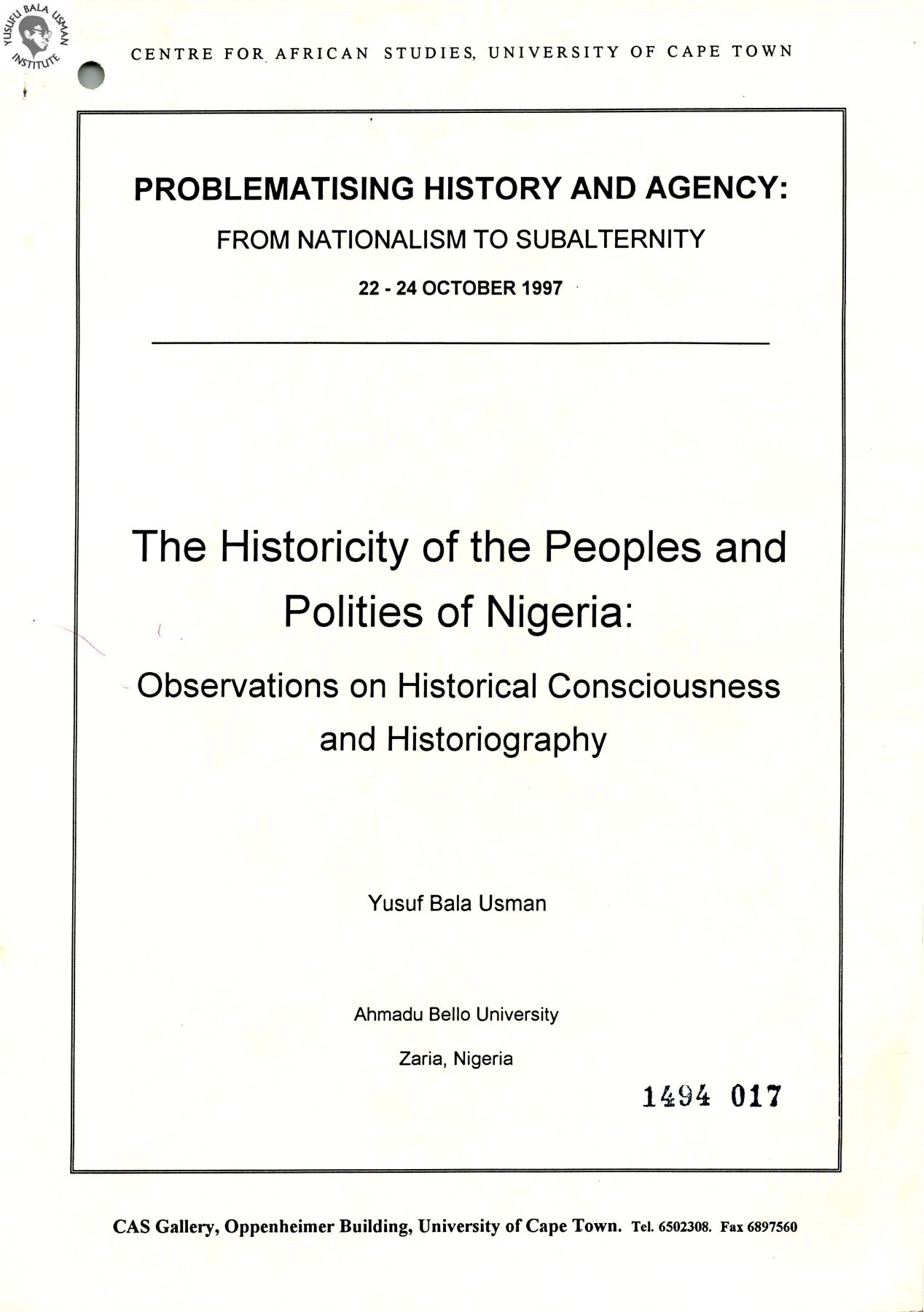Introduction
In The Historicity of the Peoples and Polities of Nigeria: Observations on Historical Consciousness and Historiography, Professor Yusufu Bala Usman presents a compelling and intellectually rigorous critique of the dominant paradigms that have shaped historical thought in Nigeria and, more broadly, across Africa. Delivered at the 1997 conference on “Problematising History and Agency” at the Centre for African Studies, University of Cape Town, the paper interrogates the widespread belief that African peoples exist as fixed, natural entities—tribes, ethnic groups, or nations—whose identities have remained unchanged “since time immemorial.” Usman argues that such essentialist views are not only historically inaccurate but also politically and intellectually limiting, especially in the context of Africa’s ongoing struggle to define its place in a rapidly globalizing world.
Drawing on the foundational works of Nigerian historians such as Kenneth Onwuka Dike, Joseph Anene, and Abdullahi Smith, Usman traces the evolution of historiographical thought from nationalist frameworks to more nuanced understandings of subalternity, identity formation, and state-building. Professor Yusufu Bala Usman highlights how these scholars, through meticulous research and critical analysis, challenged colonial and postcolonial narratives that portrayed modern African nation-states as artificial constructs imposed upon supposedly natural and timeless ethnic divisions. Instead, they revealed the complex processes—migration, trade, religious movements, and political revolutions—that contributed to the formation of multi-ethnic communities and evolving national identities.
Usman emphasizes the importance of historicity—the recognition that concepts, categories, and identities are themselves products of historical processes. He critiques the tendency in Nigerian historiography to treat contemporary ethnic and national identities as timeless and unchanging, warning that such ahistorical approaches obscure the realities of political mobilization, social transformation, and cultural integration. Through examples such as the Aro Confederacy, the Kanuri people, and the impact of Islamic revolutions in West Africa, the paper illustrates how identities have been shaped by dynamic interactions rather than static lineage or geography.
Ultimately, Usman calls for a reimagining of African historical consciousness—one that is rooted in critical awareness, empirical rigor, and an openness to complexity. He argues that understanding the historicity of African peoples and polities is not merely an academic exercise but a necessary foundation for meaningful engagement with the continent’s future. As Africa confronts the challenges of the 21st century, including globalization, political instability, and cultural negotiation, a historically grounded perspective becomes essential for crafting inclusive, resilient, and forward-looking societies.
To read this book, click this link: https://ivavalleybooks.com/wp-content/uploads/2025/08/PROBLEMATISING-HISTORY-AND-AGENCY-FROM-NATIONALISM-TO-SUBALTERNITY-22-24-OCTOBER-1997.pdf

